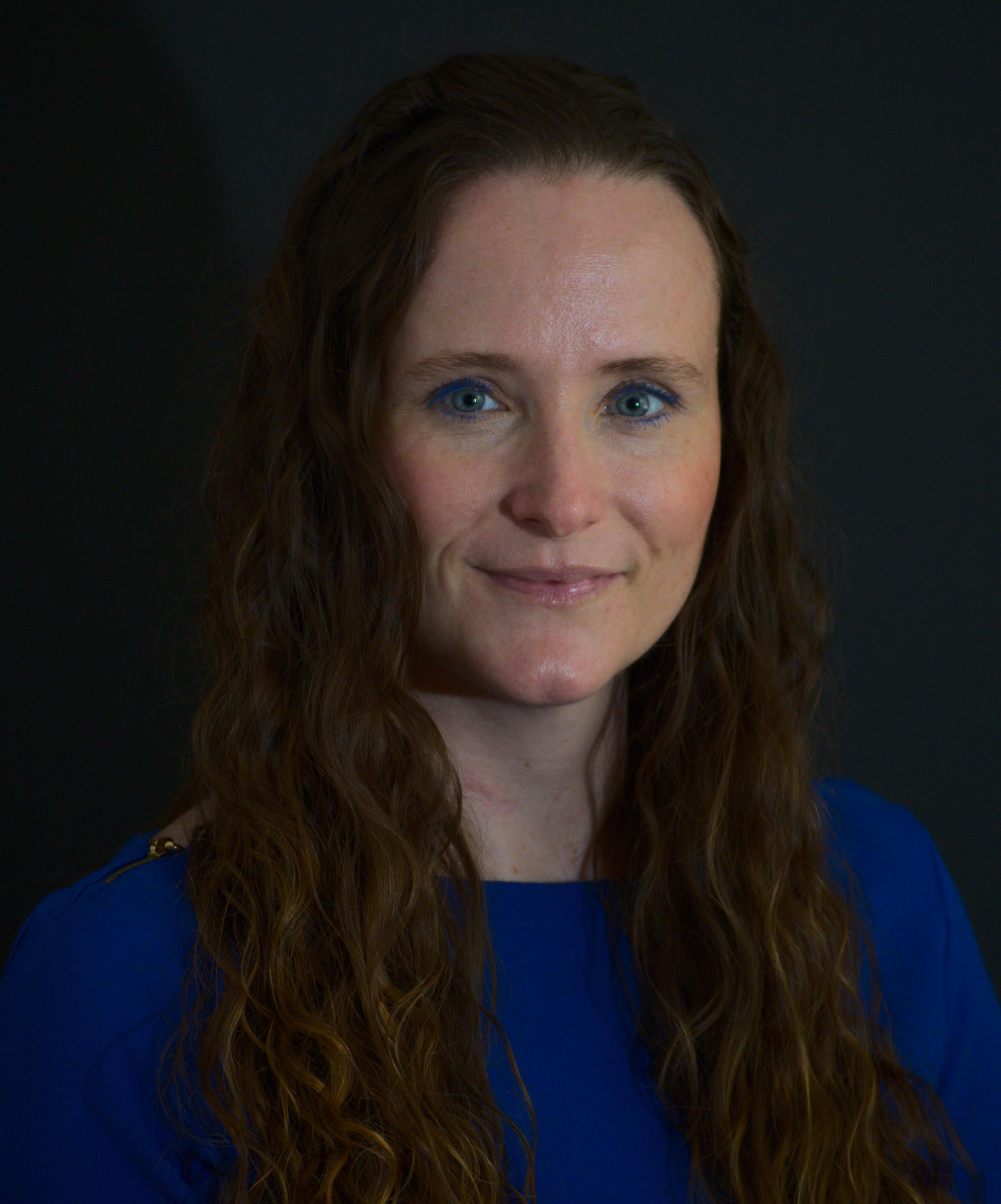Doctor of Education in Professional Counseling and Supervision
The Mission of the Professional Counseling and Supervision program (Ed.D.) is to prepare counseling professionals to positively impact their clients and communities of service through effective practices and programs, leadership, and advocacy.
Ed.D. in Professional Counseling and Supervision equips graduates with the skills they need for advancement and/or achievement in counseling-related positions. The curriculum builds upon skills and knowledge acquired through previous degrees in counseling and extends graduates' knowledge through an emphasis on program evaluation, clinical and administrative supervision, and advocacy and leadership.
At the completion of the program, students defend a professional practice dissertation that is designed to evaluate and improve programs or examine relevant issues in Professional Counseling, thereby positively impacting clients and communities of service in which students work.
For more information, please see the Academic Catalog. A program sheet, which provides a required coursework sequence, is available for download in the Courses tab below.
The mission of the Professional Counseling and Supervision program is to prepare counseling professionals to positively impact their clients and communities of service through effective practices and programs, leadership, and advocacy. In addition, program graduates will demonstrate competency in program evaluation and a commitment to helping marginalized and underserved populations in the communities, schools, and agencies they serve. This leader-practitioner program consists of two tracks: (a) 60 credit hours for those who enter without an Ed.S. in counseling or (b) 39 credit hours for those who enter with an Ed.S. in Counseling. After a rigorous screening process, cohorts are selected in March of each year, and students will be notified of their acceptance in April. The fully online degree program begins in the summer semester. The program is designed to be completed in two full years (6 semesters, including summers, for the 39-hour track) or three years (9 semesters, including summers, for the 60-hour track). Successful completion and defense of a dissertation are required.
Two doctoral level courses are offered each term. The program builds upon a strong foundation developed through previous graduate education and professional experience. Doctoral students learn to evaluate and improve programs and interventions in the context of their current work settings. Dissertations, evaluation studies, are developed through embedded assignments across the curriculum. The counseling faculty in the Department of Counseling, Higher Education, and Speech-Language Pathology are well-recognized at state, regional and national levels for their professionalism. They consistently publish research and practice articles in peer reviewed journals, attend and present at state, regional and national conferences, and hold leadership positions in professional and honor societies. Open the faculty link on this page to view their credentials.
This program qualifies Georgia educators holding School Counseling certification for an in-field upgrade (see GaPSC Certificate Upgrade Advisor).
It is extremely important that prospective students review the department's accompanying website where many Frequently Asked Questions are answered: http://h0s6.ballballu.com/academics/education/cspc/eddpcs/index.php
Program Handbooks: http://h0s6.ballballu.com/academics/education/cspc/eddpcs/program-handbooks.php
Program Location
Online
Method of Delivery
Students enrolled in the 39-hour track complete two courses per term for a 2-3 year period. Students enrolled in the 60-hour track complete two to three courses per term for a 3 year period. The courses are delivered via distance technology. Aside from a required on-campus orientation at the beginning of the first summer term of enrollment, all curricular and extracurricular experiences are managed through distance technology.
Accreditation
The University of West Georgia is accredited by The Southern Association of Colleges and Schools Commission on Colleges (SACSCOC).
Credit and transfer
Total semester hours required: 39-60
Maximum Hours Transferable into program: 0*
*No credits can be transferred
Graduate students may be able to reduce their cost through prior learning, previous graduate degrees earned at 在线博彩, or transfer credits. We have created a tool to help students estimate their tuition costs.
This program is offered entirely online. Though a student may choose to sign-up for a face-to-face elective or core course, one can earn this degree completely online.
Save money
在线博彩 is often ranked as one of the most affordable accredited university of its kind, regardless of the method of delivery chosen. In addition, online courses and programs can mean a huge cost-savings in many non-evident ways: No more high gas charges. No childcare needed. The flexibility can allow one to maintain a job while attending school. Regardless of state residency, out-of-state non-resident students are not charged non-resident tuition for online course credit hours.
Details
- Total tuition costs and fees may vary, depending on the instructional method of the courses in which the student chooses to enroll.
- The more courses a student takes in a single term, the more they will typically save in fees and total cost.
- Face-to-Face or partially online courses are charged at the general tuition rate and all mandatory campus fees, based on the student's residency (non-residents are charged at a higher rate).
- Fully or entirely online course tuition rates and fees my vary depending on the program. Students enrolled in exclusively online courses do not pay non-Resident rates.
- Together this means that GA residents pay about the same if they take all face-to-face or partially online courses as they do if they take only fully online courses exclusively; while non-residents save money by taking fully online courses.
- One word of caution: If a student takes a combination of face-to-face and online courses in a single term, they will pay both all mandatory campus fees and the higher eTuition rate.
- For the cost information, as well as payment deadlines, see the Student Accounts and Billing Services website
There are a variety of financial assistance options for students, including scholarships and work study programs. Visit the Office of Financial Aid's website for more information.
Downloads
General
This program consists of two tracks, depending on applicant's previous education.
Applicants with an Ed.S. in Counseling will be placed in the accelerated track consisting of 39 credits and two years of coursework including the dissertation.
Students admitted without an Ed.S. in Counseling will be placed in the 60 credit hour track with a requirement of 4 electives.The course descriptions below reflect the courses for the 60-hour track.
This course is designed for graduate students who have been admitted into the Ed.S. program in Professional Counseling. The purpose of this course is to equip students with knowledge and skills in the area of professional writing. In this course, students will review the basic grammatical principles and conventions necessary to communicate effectively in written form. Moreover, students will learn technical writing techniques and the structure of a professional manuscript. Students will apply this knowledge through course-embedded assignments that promote skill development, helping students learn to successfully write across a range of topics, from short reports to research manuscripts.
This course examines advanced therapeutic topics and techniques in Professional Counseling, such as but not limited to, trauma therapy, crisis intervention, substance use counseling, and gender inclusive practice. Emphasis is placed on evidence-based practice in both school counseling and clinical mental health settings.
This course focuses on the theories, concepts, and processes involved in planning and managing evaluations. Students will engage in evaluations in specific counseling situations (individual, group, organizational) using focus groups, key stakeholder interviews, survey design, data gathering, analysis and/or other methods as appropriate and analyze outcomes to make recommendations for development and/or remediation.
Individual inquiry on a research problem consisting of a plan for data collection and analysis, as well as, critical review, integration and interpretation of research literature.
This course is a special topics seminar structured to address professional issues in counseling. An exchange of scholarly thinking and research will be the hallmark of classroom interactions and activities.
This course is a special topics seminar structured to address advocacy of marginalized and underserved populations in counseling. An exchange of scholarly thinking and research will be the hallmark of classroom interactions and activities.
There are two iterations of this course. Students enrolled in the expedited doctoral track will complete one section of CEPD 9186 in the area of administrative supervision. Students enrolled in the non-expedited doctoral track will complete two sections of CEPD 9186 in the areas of administrative supervision and program evaluation. These courses involve hands-on practical learning experiences in the respective content areas. These courses are not intended to fulfill requirements for Professional Counselor (or related) licensure.
This course is designed to introduce students to administrative supervision. Students will apply core concepts of administrative supervision and demonstrate awareness of best practices in administrative supervision and consultation. This course is not intended to fulfill requirements for Professional Counselor (or related) licensure.
The dissertation experience requires the designing and conducting of an independent scholarly inquiry guided by a faculty dissertation committee.
This course is designed to provide educational leaders with a framework for constructing responses to ethical issues and dilemmas commonly faced by school and district administrators. A blend of leadership and ethics theory will inform practical application. Students will reflect on their personal ethical stances and how they impact their actions and choices. The ethics of decision making will be considered and students will draw upon past experiences to help inform future ethical decision making abilities. This course also examines what it means to be an effective caring leader within a team and organization.
This course introduces the graduate student to basic methods of empirical inquiry used in education, nursing, and related social sciences. Quantitative research designs commonly used in these disciplines are emphasized. Students will learn how to select samples, identify appropriate measurement instruments, analyze data descriptively, and apply a variety of inferential statistical tests to answer research questions.
This course focuses on the use of qualitative methods of research, including theoretical perspectives and methods of collection and analysis of qualitative data sources in educational studies. It emphasizes analysis of work samples, observations, inquiry data, artifacts, and other sources of data. Students become skilled at using methods of qualitative research to evaluate school improvement issues. In addition, students examine strategies for thematic and other forms of analysis of observational and inquiry data. Throughout the course students collect and analyze school improvement data.

Aleah S. Brock, Ph.D., CCC-SLP
Assistant Professor of Speech-Language Pathology and Assistant Chair of CHS

Lama K. Farran, Ph.D., CCC-SLP
Professor of Speech-Language Pathology

Regina Finan, Ph.D.
Assistant Professor of Counselor Education

Tommy Jackson, JD, Ph.D., MBA, MPA
Assistant Department Chair and Assistant Professor

Morgan Jenkins, PhD, LPC, ACS
Clinical Assistant Professor

Jairus-Joaquin Matthews, PhD., CCC-SLP
Associate Professor of Speech-Language Pathology

Michele Pinellas, Ed.D.
Clinical Assistant Professor of Counseling

Olivia Uwamahoro, Ph.D., LPC, NCC, CPCS

Matt Varga, Ph.D.
Dean of the Graduate School

Julia Whisenhunt, Ph.D., LPC, NCC, CPCS
Professor of Counselor Education and Assistant Department Chair

Shanna Widener, Ph.D.
Associate Vice President for Strategic Enrollment Management
Guidelines for Admittance
- All graduate applicants must complete the online Grad Application. A one-time application fee of $40 is required.
- International applicants are subject to additional requirements and application deadlines. See Procedures for International Students.
- Students who apply and are admitted without an Ed.S. will be required to take an extra year of courses. Please review the Courses tab for a detailed plan of study.
Program Specific Admittance Guidelines
Required Qualifications:
In order to eligible to apply to the Ed.D. in Professional Counseling and Supervision, all of the following must be met:
- Licensed or license-eligible in counseling or related field
- Cumulative minimum graduate GPA of 3.5 on a 4.0 scale
- Official GRE scores not older than 5 years with preferred scores of
- Verbal - 151
- Quantitative - 142
- Writing - 3.5
- Masters in counseling or related field
- (e.g. psychology, counseling psychology, clinical social work, mental health counseling, community counseling, marriage and family therapy, school psychology, school counseling, or school social work)*
- *If the program was not CACREP accredited at the time of the applicant's graduation, the applicant must demonstrate that the program was substantially CACREP equivalent or the accrediting body that accredited the degree is equivalent to CACREP standards.
- Minimum of three years of post- masters counseling experience in private or public schools, community agency, university, hospital, or private practice
If all of the above are met, then the application requires the following:
- Personal Statement: A 300-500 word essay presenting the applicant's professional goals and the relationship between those goals and the program mission
- Official transcripts from all schools that have conferred degrees (Bachelor's, Master's, etc.) are required and should be sent directly to the 在线博彩 Graduate Admissions Office.
- Three recommendations from professionals who are familiar with the applicant's professional qualities and academic potential. The electronic Recommendation Request form will be available after you submit your application.
- Vitae
- Interview with faculty (after application file is complete).
Application Deadlines
See the Graduate School Deadlines page for admissions deadlines.
Contact
Application questions should be directed to graduate@ballballu.com.
The Ed.D. in Professional Counseling and Supervision Website includes a directory of instructors and their credentials, as well as other vital information.
Contact
Dr. Julia Whisenhunt
Program Director
jwhisenh@ballballu.com
678-839-6116
See the Graduate School Deadlines page for admissions deadlines.
- Candidates will apply administrative supervision principles to the development of an administrative supervision plan.
- Candidates will demonstrate advanced knowledge of professional counseling intervention through the creation of an advocacy plan to improve services for marginalized, underserved populations.
- Candidates will demonstrate advanced knowledge of professional counseling through the creation of a professional association presentation.
- Candidates will analyze relevant literature and develop a comprehensive dissertation literature review.
- Candidates will apply knowledge of research through the development of a scientifically credible dissertation research method.
- Candidates will analyze and evaluate dissertation research data to draw scientifically credible conclusions.
- Candidates will create an integrated dissertation discussion that synthesizes dissertation findings within the framework of existing literature and offers data-driven recommendations for practice.
